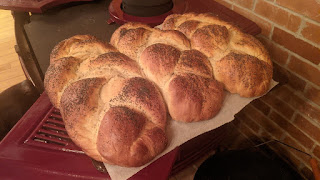“What do you want to be when you grow up?” is a oft-asked question, whether posed to a group of 4 year olds playing with Legos and trucks or a youngster choosing a book from his personal home library. Children playing with blocks being creative with design and those little ones who like to read or be read to are already filling up their ‘ideas’ bank with things they’d like to do and be when they get old enough, big enough, smart enough. Reinforcing the value of constructive play with one or two others or organizing a Lego house building contest is a great way for children to work collaboratively from a very young age. Reading circles also provide children with opportunities to learn and share ideas. Reading contributes to allowing people, young and old, to make informed decisions about what they want to be and do when they grow up, so it’s vital to encourage it. Not all children are suited to the university track, that sought after goal of their parents and grandparents before them, but they can still be productive, forward moving citizens doing something quite different, that’s suited to their temperament and interests.
The opportunities available to children while they are young will shape options available to them once they become part of the community on a more consistent, daily basis starting with schooling, from kindergarten going forward.
In a recent newspaper article I read about curriculum changes to be made within New Brunswick schools to allow for more flexibility and choice. Having access to learning opportunities that appeal to aptitudes and interests has a staying power not always found in ‘sit down a be quiet’ methods of teaching; the latter model, in its rigidity, tends to set the stage for students tuning out to the instructor and that in turn is reflected in poor showing at exam time. The interest in material presented just isn’t there. Something had to be done. Still more needs to be done. Bring back shop, home economics, business education courses -- all those classes where hands-on learning drives the lessons. Co-operative learning and apprenticeship within the community are other ways to strengthen ‘staying power’ of the student’s in school experience. Children moving from kindergarten to first grade benefit from lots of hands-on learning which inspires them to drive their learning, whether through reading about specific topics of interest or venturing out into the community to become a part of groups involved in uplifting community spirit.
For the most part, the growth of a child becomes a community project with many hands involved in shaping the path to young adulthood and beyond. For that reason, it’s imperative to pay attention early on, noting those subtle cues that tell you the story of the child’s learning style. In that way, adults can tailor their approach to match the skills of the child, setting a path for the youngster to thrive and move forward with little frustration to success.
When asked many children will say they want to be, in order of preference, a doctor, a teacher, a scientist or a baker. The latter is a skill that every child should learn as soon as they’re able to toddle. Helping in the kitchen is an education in itself. Baking and cooking incorporate listening skills, reading and math skills and the skill of co-operation – working with one or more to achieve the end result; the finished cake, batch of cookies or hamburgers. Fruits of the labour are enjoyed by all and knowing their efforts are appreciated, as they should be, inspires children to do it again, to even ask to do it again. And that is exactly what a teacher wants and needs to see.
When I was growing up in rural NB, I lived in a community where families were large; I’m number 7 of 8. Following trends, children often chose professions in keeping with the work life experience of their parents. Typically, mothers worked inside and around the home, sustaining a stable home life for her husband and children. As children grew in maturity, they took their place in sharing load. That’s the way it was. All manner of interchangeable skill sets were accumulated that allowed children to make decisions about future plans that were more reality based. Children who wanted to be Superman when they were 4 grew into the idea when they were 12 that they wanted to be a police officer when they grew up.
My late father was a doctor and my mother was a teacher. Before he was a doctor, though, Dad was a teacher. When he was in med school, there were already two children, an older sister and brother; over time, 6 more ‘rug rats’ joined them. None of us went on to be a doctor but a few teachers tumbled out of Clan MacInnis. I’ve been a bit o this and a bit o that over my life. With the passage of time, the stuff that defines me as a ‘productive’ citizen got rolled into one job; the job of being me – a listener, a counsellor, a reader, a writer. I’ve been writing for over 30 years and with this publication for 10. Living what I know, as I age with disability, allows me to educate parents out there who may be raising little ones like the child I used to be. There’s a place for us!
Carla MacInnis Rockwell is a freelance writer and disability rights advocate living outside Fredericton, NB with Miss Lexie, a rambunctious Maltese and Mr. Malcolm, a boisterous Havanese. She can be reached via email at Carla MacInnis Rockwell

